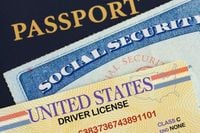The Social Security Administration (SSA) has announced significant changes to its identity verification requirements, a move that follows mounting criticism from lawmakers and advocacy groups. Initially set to take effect on March 31, 2025, the new rules aim to ease the burden on vulnerable populations, particularly those who struggle with in-person verification.
Starting April 14, 2025, individuals applying for Social Security Disability Insurance (SSDI), Medicare, or Supplemental Security Income (SSI) who are unable to use a personal my Social Security account will now have the option to complete their applications over the phone. This change is designed to accommodate those who may have limited mobility or access to Social Security offices.
SSA Acting Commissioner Leland Dudek stated, "We have listened to our customers, Congress, advocates, and others, and we are updating our policy to provide better customer service to the country's most vulnerable populations." Dudek emphasized that the agency is extending the effective date of the policy to ensure adequate training for employees on the new procedures.
However, the revised policy still requires some beneficiaries to verify their identity in person. This includes individuals applying for retirement benefits, survivor benefits, or auxiliary benefits for a spouse or child. The SSA clarified that in extreme cases—such as those involving terminal illness or a prisoner pre-release scenario—the in-person requirement could be waived with proper documentation and management approval.
The policy adjustments come in response to widespread backlash against the SSA's initial announcement, which would have eliminated the option for over-the-phone identity verification altogether. Critics argued that this would impose unnecessary barriers on vulnerable populations, including older Americans and individuals with disabilities.
Donna Boatman, a Social Security recipient and advocate, expressed her frustration about the initial policy. "A lot of people on Social Security are on disability. They don’t have cars, they don’t know how to use a computer. It’s like they’re trying to make it as hard as possible for people to get their Social Security," she said. Boatman’s concerns reflect a broader anxiety among recipients who fear that the changes could jeopardize their access to essential benefits.
In light of the public outcry, the SSA's revised policy includes exemptions for those applying for SSDI, Medicare, and SSI, recognizing that there are multiple opportunities during the decision process to verify a person’s identity. Despite this, Boatman remains apprehensive. "My friends and my community are worried that we just know what’s gonna happen and we don’t know what to do next. So, we’re not spending, we’re not buying a new car. Do we sell our home because we’re not gonna be able to afford it in a few months? We’re just up in the air honestly," she explained.
The SSA's changes are part of a broader effort to combat fraud and improve security. The agency plans to implement the Department of Treasury's Bureau of Fiscal Service's Account Verification Service, which will provide instant bank verification to help reduce the risk of fraudulent direct deposit changes. To reinforce these identity verification measures, the SSA has also mandated that nearly all employees, including frontline staff, return to working in offices five days a week.
For most beneficiaries, the revised rules should facilitate access to benefits without the need for an office visit. However, those applying for retirement or survivor benefits or changing direct deposit information may still need to visit a Social Security office if they cannot verify their identity online. The SSA has committed to monitoring the impact of these new policies and adjusting them as necessary to strike a balance between security and accessibility.
As the effective date of the new policy approaches, it remains to be seen how these changes will impact beneficiaries in practice. Advocacy groups continue to call for more comprehensive reforms to ensure that the most vulnerable populations can access the benefits they need without facing undue hardship.




